7 Best Herbal Tinctures For Varicose Veins
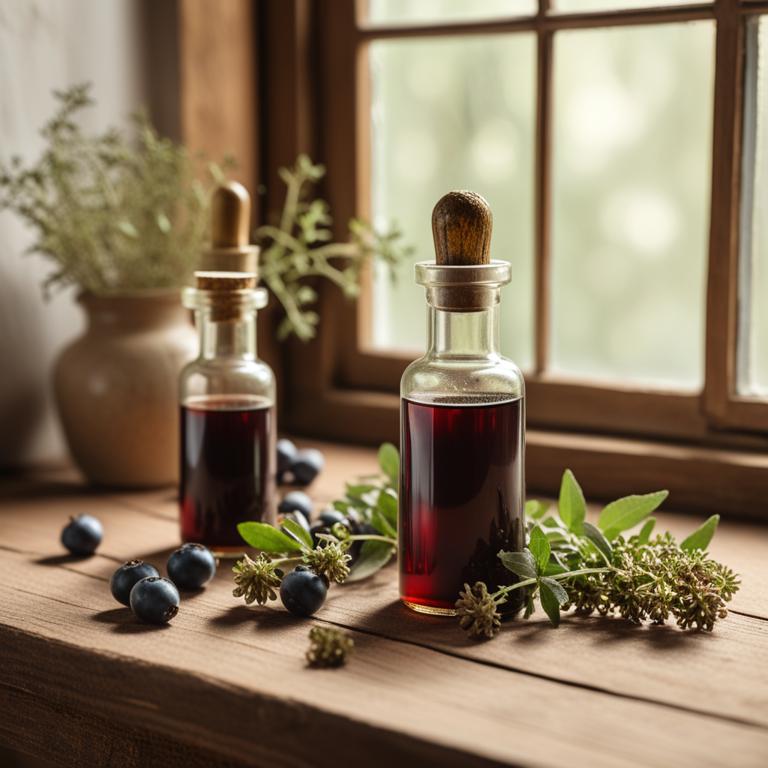
Herbal tinctures for varicose veins are concentrated plant extracts used to alleviate the symptoms of varicose veins, a condition characterized by swollen and twisted veins, typically on the legs.
The benefits of using herbal tinctures to treat varicose veins include improved circulation, reduced inflammation, and enhanced overall vein health.
Some popular herbal tinctures used to treat varicose veins include Butcher's Broom, which helps to strengthen veins and improve circulation; Horse Chestnut, which reduces inflammation and improves blood vessel function; Witch Hazel, which reduces swelling and promotes healing; and Ginkgo Biloba, which improves blood flow and reduces the risk of blood clots.
Additionally, herbal tinctures like Valerian Root, Dandelion, and Horsetail are also used to treat varicose veins, as they help to improve circulation, reduce inflammation, and promote overall vein health.
According to "Arzneimittel-Forschung", tinctures for varicose veins containing Red Vine Leaf Extract (RVLE) have been found to be effective in reducing lower leg edema and circumference, and improving symptoms of chronic venous insufficiency, with a higher dose of 720 mg RVLE showing a slightly greater and more sustained improvement.
Below there's a list of the 7 best herbal tinctures for varicose veins.
- 1. Hamamelis virginiana tinctures
- 2. Ginkgo biloba tinctures
- 3. Vaccinium myrtillus tinctures
- 4. Crataegus monogyna tinctures
- 5. Aesculus hippocastanum tinctures
- 6. Ruscus aculeatus tinctures
- 7. Vitis vinifera tinctures
Also you may be interested in...
TODAY'S FREE BOUNDLE
Herb Drying Checklist + Herbal Tea Shopping List + Medicinal Herbs Flashcards
Enter you best email address below to receive this bundle (3 product valued $19.95) for FREE + exclusive access to The Aphotecary Letter.
$19.95 -> $0.00
1. Hamamelis virginiana tinctures
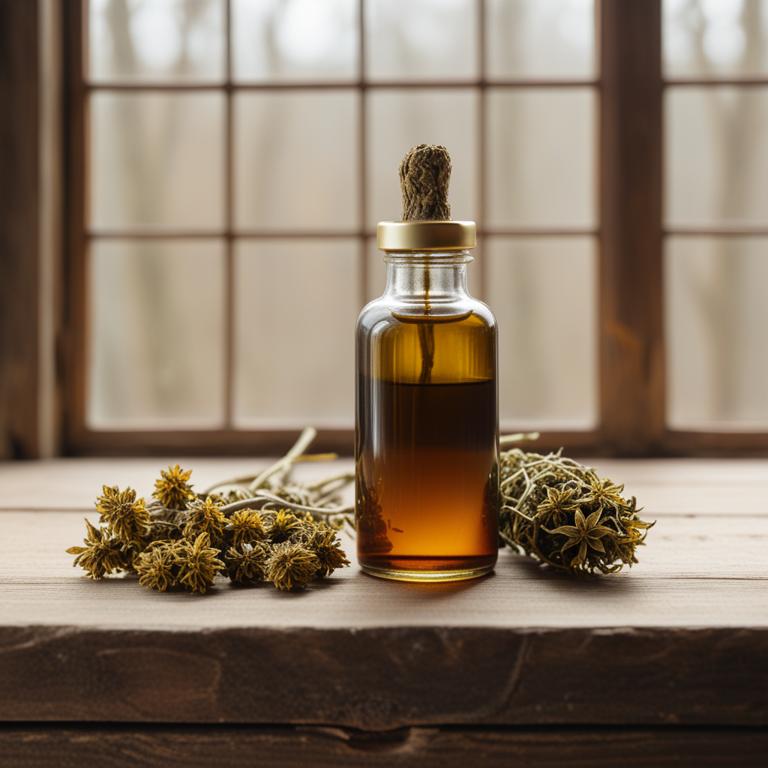
Hamamelis virginiana tinctures have been traditionally used to treat varicose veins, a condition characterized by swollen and painful veins, due to their astringent and anti-inflammatory properties.
The bioactive constituents of Hamamelis virginiana, such as flavonoids and phenolic acids, help to constrict blood vessels, reduce inflammation, and improve circulation, which in turn alleviates the symptoms of varicose veins.
By reducing inflammation and promoting blood flow, Hamamelis virginiana tinctures can help to relieve pain, swelling, and discomfort associated with varicose veins, as well as promote the healing of damaged veins.
The benefits of using Hamamelis virginiana tinctures to treat varicose veins include reduced inflammation, improved circulation, and alleviated pain and discomfort, making it a natural and effective treatment option for this common condition.
2. Ginkgo biloba tinctures

Ginkgo biloba tinctures have been traditionally used to treat varicose veins due to their anti-inflammatory and antioxidant properties, which help to improve blood circulation and reduce inflammation in the affected veins.
The flavonoids and terpenoids present in Ginkgo biloba, such as quercetin and bilobalide, are believed to be responsible for its therapeutic effects on varicose veins.
By improving blood flow and reducing inflammation, Ginkgo biloba tinctures may help to alleviate symptoms such as swelling, pain, and discoloration associated with varicose veins.
Regular use of Ginkgo biloba tinctures may also help to improve overall vascular health and reduce the risk of complications associated with varicose veins.
Related Study
According to "Presse medicale (Paris, France : 1983)", Ginkgo biloba tinctures have been shown to correct the capillary defect in cases of idiopathic cyclic oedema, which can be associated with varicose veins.
3. Vaccinium myrtillus tinctures
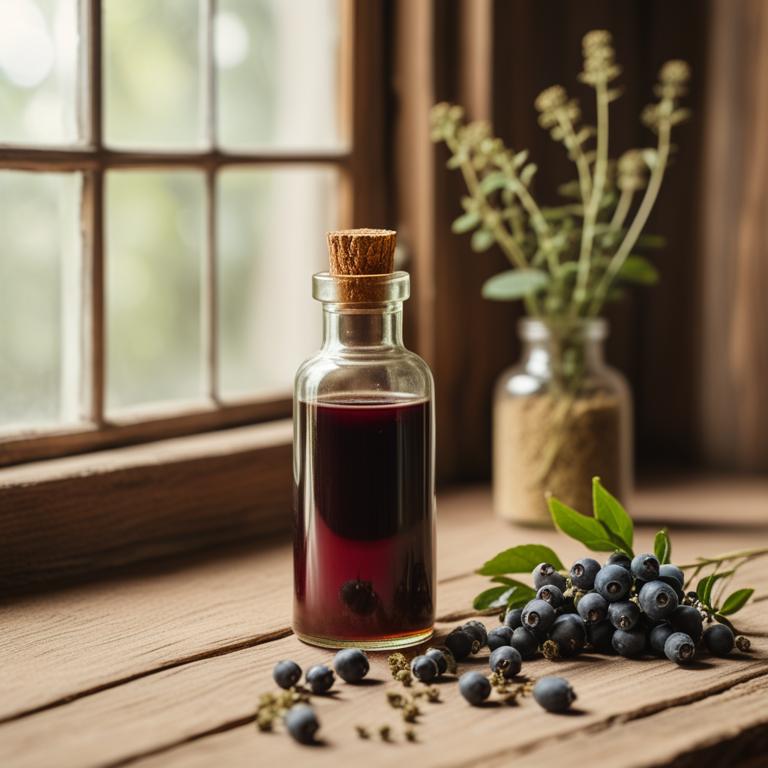
Vaccinium myrtillus tinctures have been traditionally used to treat varicose veins due to their antiseptic and anti-inflammatory properties, which help to reduce swelling and alleviate pain associated with the condition.
The bioactive constituents, including anthocyanins and flavonoids, in Vaccinium myrtillus tinctures possess antioxidant and vasoprotective effects that contribute to the treatment of varicose veins by strengthening blood vessel walls and improving circulation.
These properties help to reduce the formation of blood clots, alleviate symptoms such as itching and pain, and promote the healing of damaged tissue.
Overall, Vaccinium myrtillus tinctures offer a natural and effective treatment option for varicose veins, providing relief from discomfort and promoting overall vascular health.
4. Crataegus monogyna tinctures
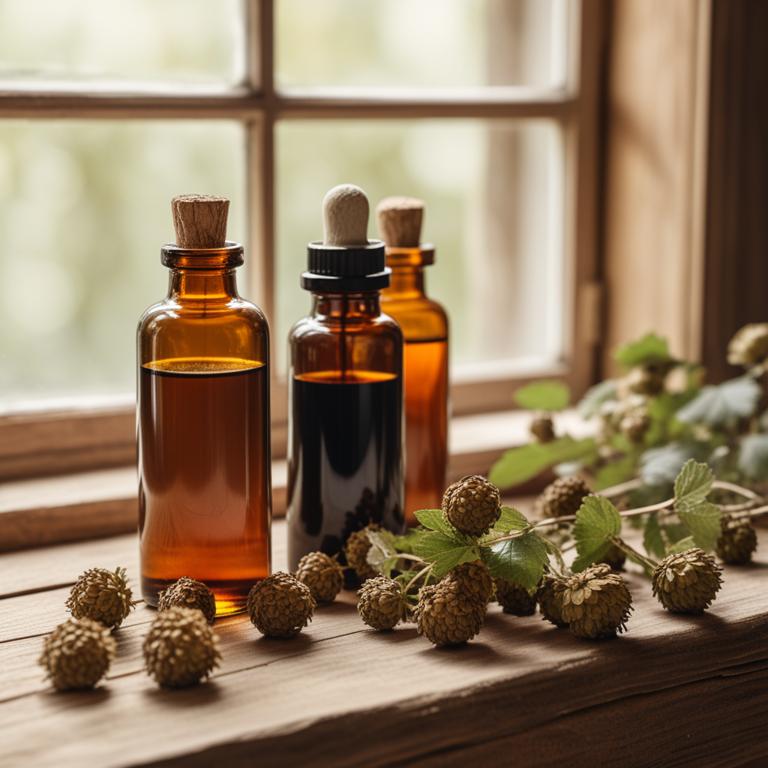
Crataegus monogyna tinctures have been used in traditional herbal medicine to treat varicose veins due to their anti-inflammatory and vasoconstrictive properties, which help to improve blood vessel tone and reduce swelling.
The bioactive constituents of Crataegus monogyna, including flavonoids, phenolic acids, and triterpenoids, are responsible for its therapeutic effects, which help to strengthen blood vessel walls and improve circulation.
By improving blood flow and reducing inflammation, Crataegus monogyna tinctures can help to alleviate symptoms of varicose veins, such as pain, swelling, and discoloration.
Regular use of Crataegus monogyna tinctures can also help to promote collagen synthesis and improve overall vascular health, providing long-term benefits for individuals with varicose veins.
5. Aesculus hippocastanum tinctures
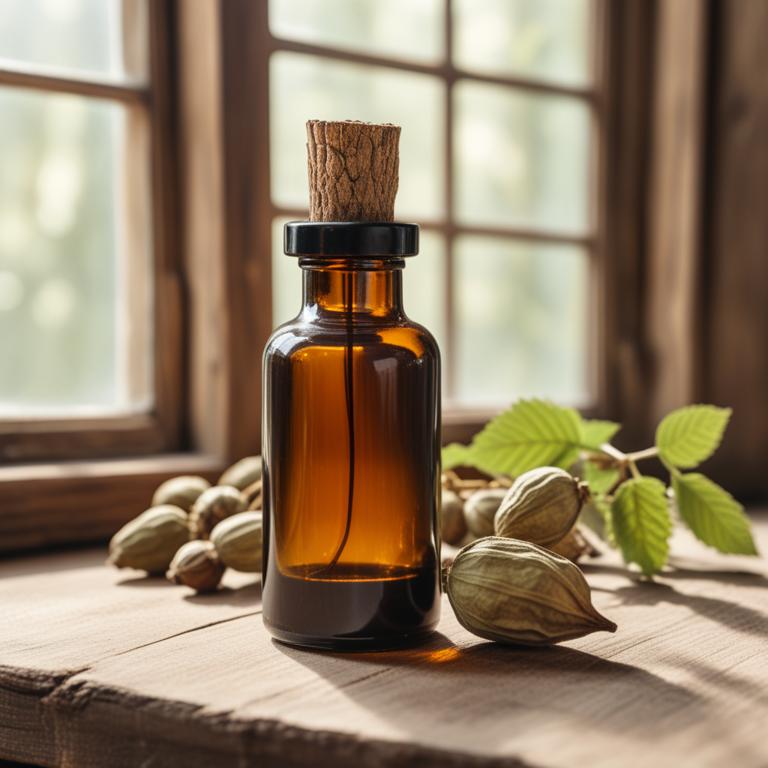
Aesculus hippocastanum tinctures have been traditionally used to treat varicose veins due to their anti-inflammatory, antiseptic, and venotonic properties.
The venotonic properties of Aesculus hippocastanum help to strengthen and improve the tone of blood vessels, reducing the appearance of varicose veins.
The bioactive constituents, including saponins, flavonoids, and phytosterols, work synergistically to enhance blood flow, reduce inflammation, and promote healing of the affected veins.
By using Aesculus hippocastanum tinctures, individuals can experience relief from the discomfort and pain associated with varicose veins, as well as improved overall circulation and reduced risk of complications.
6. Ruscus aculeatus tinctures
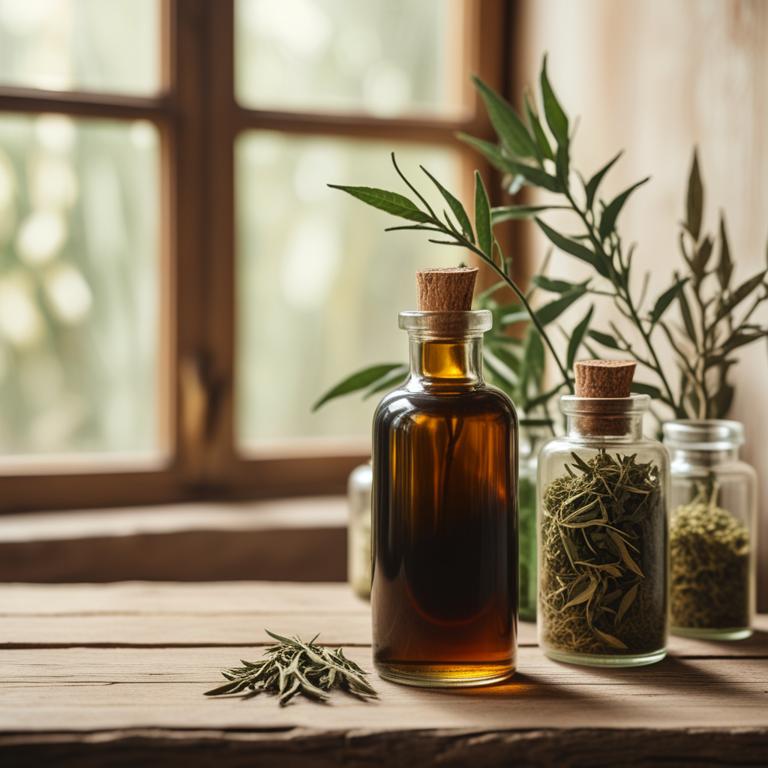
Ruscus aculeatus tinctures have been traditionally used to treat varicose veins due to their anti-inflammatory and antispasmodic properties.
The tincture helps to treat varicose veins by improving blood circulation, reducing inflammation and pain, and strengthening blood vessel walls.
The bioactive constituents of Ruscus aculeatus, including flavonoids, saponins, and terpenes, contribute to its therapeutic effects, specifically flavonoids that act as antioxidants and anti-inflammatory agents.
By using Ruscus aculeatus tinctures, individuals can benefit from reduced swelling, improved circulation, and alleviated symptoms associated with varicose veins.
Related Study
According to "Planta medica", Ruscus aculeatus tinctures for varicose veins are effective due to the vasoconstrictive and venotonic properties of ruscogenin and neoruscogenin found in the underground parts of the plant.
7. Vitis vinifera tinctures
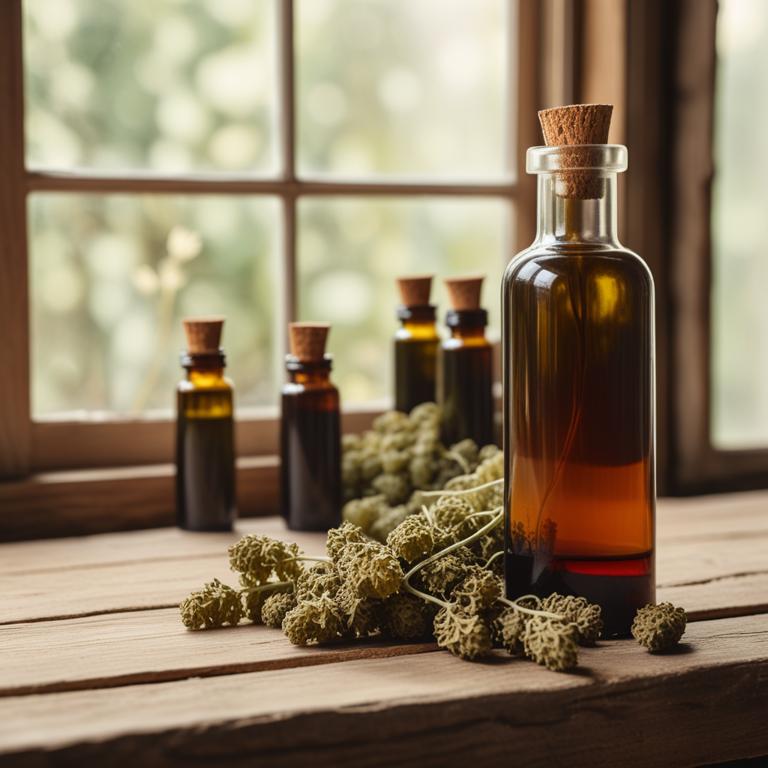
Vitis vinifera tinctures, derived from the grapevine, have been traditionally used to treat varicose veins due to their anti-inflammatory, antiseptic, and astringent properties.
These properties help to constrict blood vessels, reduce swelling, and promote blood circulation, thereby alleviating symptoms associated with varicose veins.
The bioactive constituents present in Vitis vinifera, such as flavonoids, phenolic acids, and resveratrol, contribute to its therapeutic effects by enhancing vascular health and reducing oxidative stress.
Regular use of Vitis vinifera tinctures may help to alleviate discomfort, pain, and fatigue associated with varicose veins, promoting overall venous health and well-being.
Related Study
According to "Arzneimittel-Forschung", Vitis vinifera tinctures (also known as Red vine leaf extract, RVLE) have been shown to be effective in reducing lower leg edema and circumference, and improving key symptoms of mild chronic venous insufficiency (CVI), including varicose veins, with a daily dose of 360 or 720 mg.